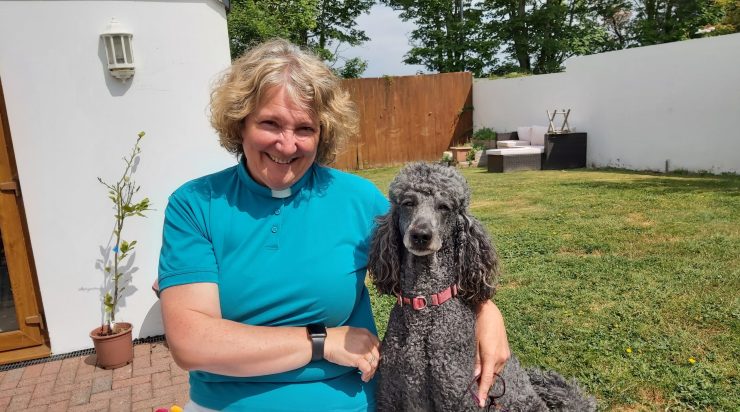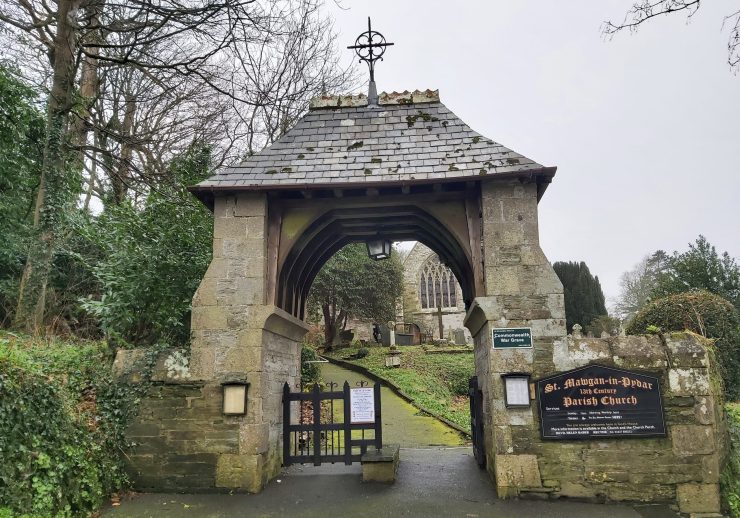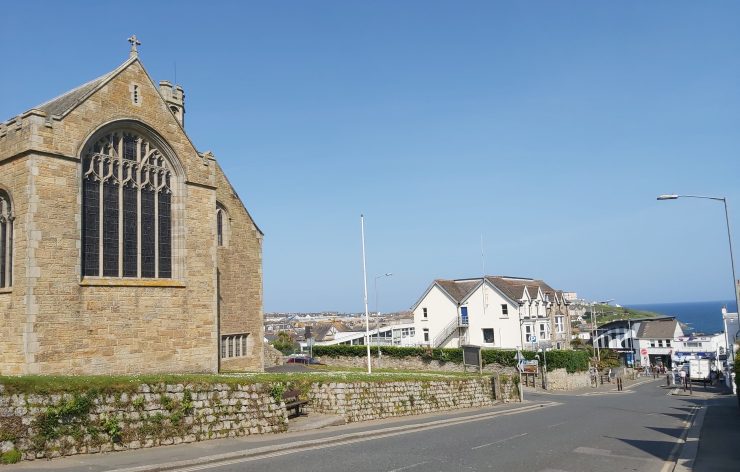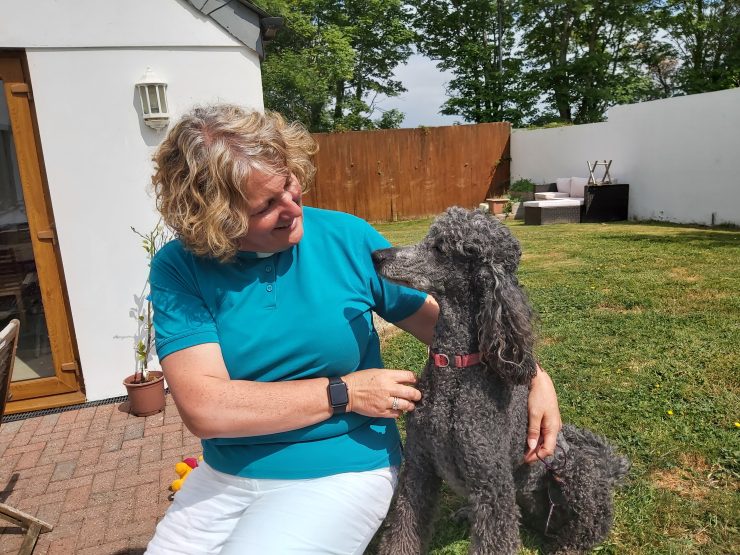Pydar welcomes new Rural Dean
The Reverend Helen Baber has this month been commissioned as Rural Dean of Pydar, the area of north Cornwall encompassing Newquay, Padstow and St Agnes.
Revd Helen will also continue to serve as Rector for St Columb Major, St Enoder, St Ervan, St Eval and St Mawgan-in-Pydar.
Helen was born in Bristol to Welsh parents. She recalls that her mother used to take her to their local Anglican church on Sundays but that the greater influence on her spiritual development had been her grandmother.
“She was a very staunch Methodist,” Helen says “Her tipple on Christmas Day was a bitter lemon. That was as far as she ever went with a drink.”
Helen trained as a nurse at the Bristol Royal Infirmary, where she worked from 1985 till 2000.
By then she was raising her two children on her own and had to work weekends to make ends meet.
So she took an opportunity to change her career and became a sales and marketing manager for a major pharmaceuticals firm.
The sound of silence
All this time, she’d continued to develop her relationship with her local church, taking on various lay roles on her parish.
She’d also joined a group that met in silent prayer. It was there that she’d heard her calling to the priesthood.
She recalls that it had taken her about 18 months to get used to the discipline of praying in silence.
“I struggled with the silence,” she says. “For an extrovert to be silent in God’s presence is really hard work! But it was easier doing it with other people. And it was learning to be silent in God’s presence that finally led me to hear God’s calling to me.”
She’d gone to her vicar and told him that she believed God was calling her to become a priest.
“About bloody time!” he’d replied.
She served her curacy in a rural parish towards the Swindon end of the Diocese of Bristol.
She remembers once telling a friend that she couldn’t imagine serving as a priest in a rural parish.
“Don’t say that,” her friend had replied. “God’s got a sense of humour. You never know where you’ll end up.”
Her next position was to become a vicar in the Cornish benefice of Lann Pydar. That was in 2014, and she still serves there very happily today.
Helen feels that her experience prepared her well for her work of oversight ministry in north Cornwall.
“Any role that’s about bringing people together and enabling them – that’s what energizes me,” she enthuses. “What I really love is pastoral ministry. I feel called to this role as an on-the-ground priest – to help build from ground level up. I have a particular pastoral responsibility to support those people working to support our parish churches – the churchwardens, the local ministers, the members of the Parochial Church Councils – all the people vital to local church leadership.”
Her new role extends her responsibilities from the Benefice of Lann Pydar out across the whole of the Pydar Deanery. But she remains very aware that it isn’t always easy to grow those kinds of pastoral relationships.
“When you come into communities that have been established for a long time, you’ve got to build trust,” she says. “You’ve got to become part of those communities, and that takes time. But my experience of rural ministry is that once people come to trust you, you can move forward together.”
She emphasises that she’s always worked to develop personal connections with her parishioners.
“People always know where they can find me if they want a chat,” she says.
She knows that there are challenges ahead in her new role, as well as great opportunities for the Anglican Church in Pydar to benefit the communities it serves.
She’s currently focused on ensuring that the Deanery’s four benefices have their full complement of clergy, and on bringing those people together into a group that meets regularly to provide support to its members and to welcome new clergy into the area.
She also believes that it’s crucial that the church continues to help and support the people of Pydar at this critical time.
“My hope is that as a deanery we can link together to focus on those with the greatest need,” she says. “There’s a real need to reach out to those who are elderly and living alone, to those who are caring for others, and to those who are living in deprivation. We know that there’s an increasing need here, because of the growing use of our foodbanks and similar services.”
The current cost-of-living crisis is one area in which she can see the church working on the ground to do real good.
Equal before God
She’s of course become experienced in facing challenges through her life, and in turning them into opportunities.
She recalls during her training for ordination how deflated she’d felt when in 2012 a Church of England vote to allow women to become bishops had failed to pass.
“It was a big thing for me at the time,” she says. “It made me reflect on why on earth I was training to be part of an organisation that didn’t see women as equal. But I realised that as a female priest in the Church of England it would be important for me to go forward – to be part of that organisation and to have a voice.”
The following year, the General Synod had voted to permit female bishops. Today, ten years later, half a dozen women hold full diocesan bishop roles.
They include the current Bishop of Bristol, Helen’s own home diocese.
“Things have moved a long way,” she says. “I look forward to the day when we have a female Archbishop of Canterbury. I hope it happens in my lifetime. That would send quite a signal to say we’re all now equal in our ministry.”








